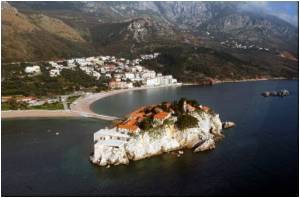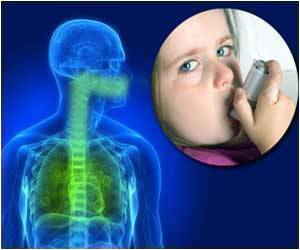Once believed as the most polluted spot in Montenegro, the remote northern town of Mojkovac is trying to shake off the stigma and promote itself as a clean and new eco-tourism hub.

The mine closed in 1991, at the start of the Balkan wars. But the dump -- an 18-hectare (44-acre) stretch of cracked gray soil -- still resembles a giant ink spot in an otherwise pristine landscape boasting three mountains, two national parks and the Tara, one of Europe's cleanest rivers.
The Tara cuts through a gorge that forms one of the continent's longest canyons, parts of which were declared a UNESCO World Heritage site in the 1980s.
Its "wild beauty" -- vaunted by the national tourism board -- draws cyclists, rafters and hikers from home and abroad, some as far as Finland, Spain and the United States, to a region that remains poorer and less-developed than the rest of the country.
Yet few of these visitors venture into Mojkovac -- a situation local officials want to change.
They insist that all toxic elements from the dump have been "stabilised" through a sanitation process that started in 2007.
Advertisement
Yet on a recent visit, dust from the old dump stung the eyes and nose and left an acid taste in the mouth. After 30 minutes, visitors had a lingering headache.
Advertisement
He and others hold it responsible for an increase in cancer and respiratory diseases among the 10,000-strong population of Mojkovac and its surroundings, which lie some 90 kilometers (54 miles) from the capital Podgorica.
In his own practice, Bogavac said he had observed "an increased number of patients complaining of breathing troubles and inflammation of eyelids, as well as cancer patients."
Local officials launched the clean-up under pressure from residents and the government, which is helping foot the bill along with the UN Development Programme (UNDP).
It involves solidifying the chemical run-off and toxic waste in the former dump to prevent it from evaporating or draining into the Tara river.
The next step aims to cover the solids with humus and gravel to seal in any toxic dirt, a 1.5 million-euro (two million-dollar) process delayed by legal wrangling but finally begun in October.
The goal is to transform this former industrial zone into a trendy recreational center for adventure and eco-tourists, including an eco-village and small hotels.
Plans also call for building a sports center right over the "sanitised" dump -- a project valued at eight million dollars. Once the final phase of the clean-up is finished, the search for investors will begin.
Municipal officials also want to develop organic agriculture and reconvert the closed mine into a museum, an underground bicycle trail or some other attraction.
"As much as this waste dump has given us problems, worries, illnesses and deaths, we now expect it to repay its debt to us and become a valuable tourist and sports potential," Bogavac said.
The project is part of a UNDP-backed Western Balkans Regional Environmental Hot Spots Programme, a three-year initiative funded by the Netherlands to assist areas in the region blighted by industrial pollution.
It is also in line with national goals.
In 1991, Montenegro was the first country in the world to proclaim itself an "ecological state," a move to make ecology and sustainability operative choices in state policy.
In 2010, the government earmarked 22 million euros (30.4 million dollars) for the environmental ministry alone to help meet "green" goals.
One high-profile backer of Mojkovac's conversion is town native Nebojsa Bogavac, 37, a professional basketball player who plays in the French national league. While home in Mojkovac nursing an injury in 2009 he started an eco-tourism firm that runs jeep safaris across the country.
With its lack of infrastructure, educational opportunities and jobs, many, like Bogavac, felt forced to leave the area.
"This is a good chance for citizens of Mojkovac to remain here and not to leave the town seeking better life, as has been the case in the past two decades," he told AFP.
The UNDP remains optimistic, despite lingering concern over pollution.
"Experts have confirmed that heavy metals are stabilised," said Borko Vulikic, a UNDP coordinator in Montenegro. He conceded there has been no "recent" analysis of heavy metal presence in air, water and land, but said "the UNDP has prepared a plan to follow these parameters."
UNDP Administrator Helen Clark, New Zealand's former prime minister, was also encouraging on a visit here in September.
"Opportunities for eco-tourism are endless," she said. "You can do anything out there in those hills and valleys."
Source-AFP








